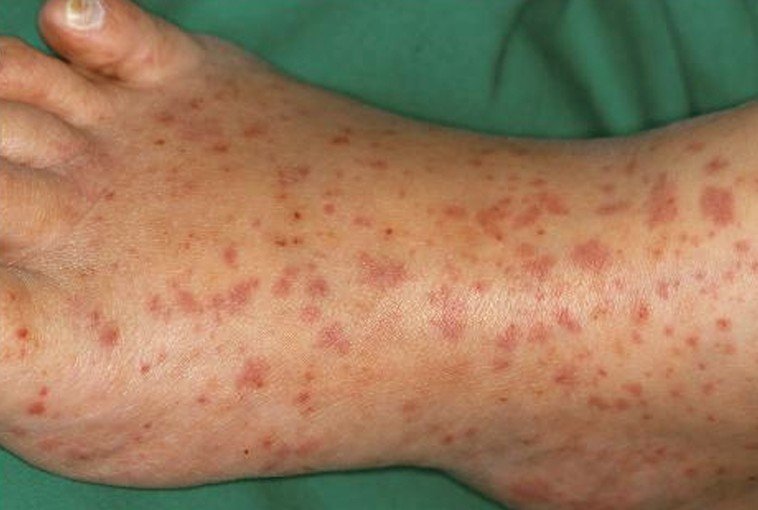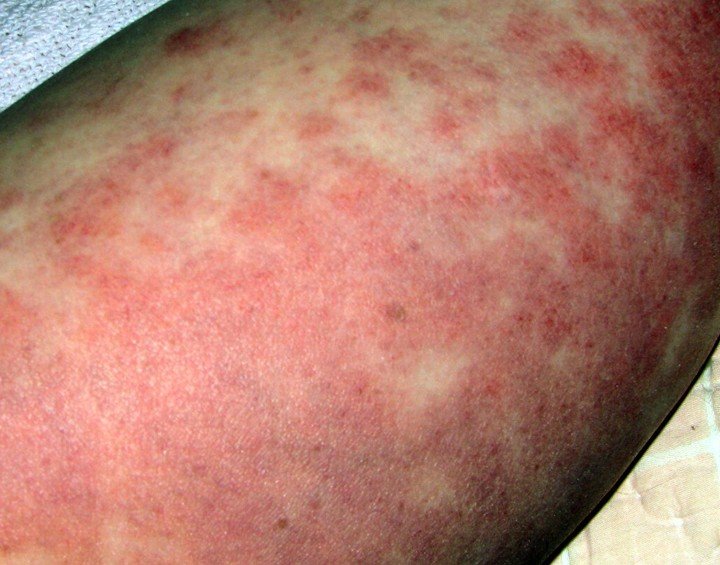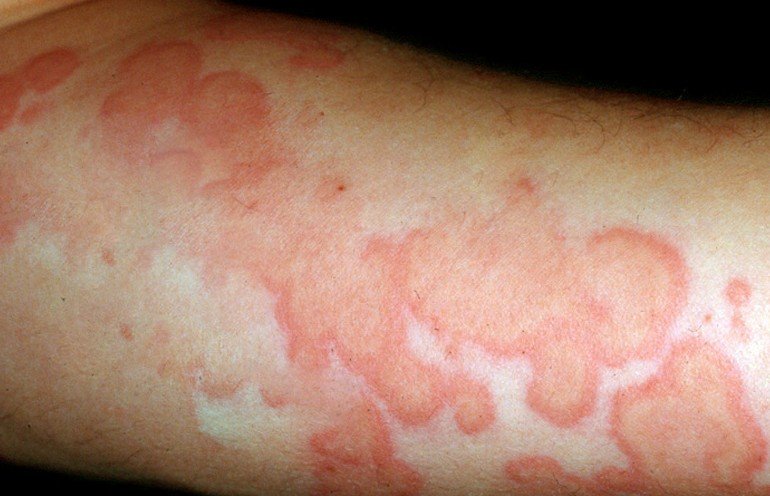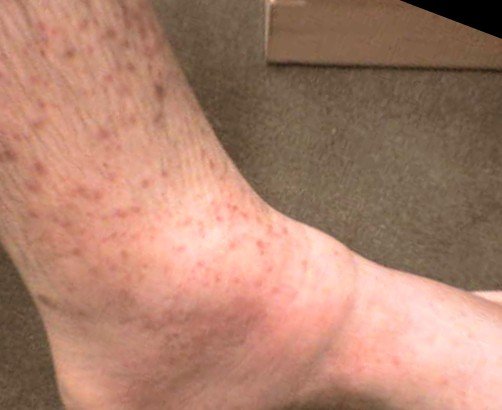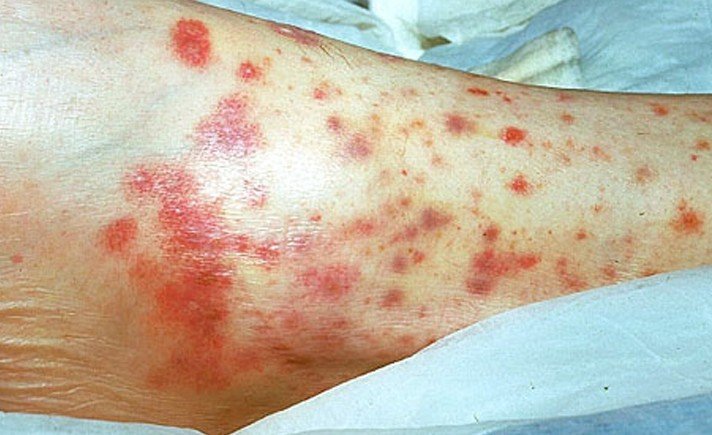Vasculitis
What is Vasculitis?
This medical condition is the inflammation of your blood vessels. It can affect all ages, race, and gender but there are some varieties of vasculitis that is more common among particular groups. It is considered a common banner for the group of diseases that are caused by the inflammation of your blood vessels. This includes your veins, capillaries, and arteries. When you have vasculitis it will affect the working order of your vascular system. It will impair the primary function of your veins, which are to return blood that is oxygen depleted back to your heat and the function of your arteries, which are to supply blood that is rich in oxygen to the body’s tissues. If your blood vessels are inflamed they can stretch, become weakened, and either become more narrow or increase in size.
Another name for vasculitis is angiitis or arteritis. There are many forms of vasculitis. The ones that last a long time is called chronic vasculitis and the ones that last for a short time is called acute vasculitis. Many types of vasculitis may be restricted to certain organs of your body like they affect only your eyes, brain, skin, etc or affect many of your organ systems at the same time. Some types of vasculitis may be mild and not require any type of treatment but others may need medical intervention.
Vasculitis Symptoms
General symptoms
- Having a low grade fever that may or may not go higher.
- Having a loss of appetite
- Weight loss that is unexplainable
- Tiredness and fatigue
- Muscle pain
- Joint stiffness
- In some cases you can feel the swelling of your veins and arteries.
- Loss of energy
If the blood flow is hampered or completely blocked off, it can affect certain organs and systems of your body each of these will have their own symptoms. For example:
Affecting your brain
- Headaches that are severe
- Stroke
Affecting your heart
- Chest pain
- Having a heart attack
Affecting your skin
- Having clusters of small dots
- Spots
- Rashes
- Hives
- Bruises
Affecting your joints
- Pain
- It could lead to conditions related to the joints such as arthritis.
Affecting your nerves
- You could have numbness.
- Tingling
- You may have weakness around the part that is affected.
- Shooting pain
Affecting your kidneys
- Abnormal urine tests
- Progressive kidney failure
Vasculitis Causes
Researchers are still studying to find out just what causes your blood vessels to become inflamed but there are several reasons that can cause them to weaken, become narrow, thicken, close off totally, scar, and/or stretch. Although they feel the main cause is the attack by your immune system they are not exactly sure why the immune system would be the cause. The trigger could be a disease of your immune system, an allergic reaction, infection, or an autoimmune disorder. Another cause could be cancer, especially the ones that particularly affect your blood cells like lymphoma or leukemia. It could also be caused by chronic medical conditions that are long term like lupus or rheumatoid arthritis.
Medical conditions
- Behcet’s syndrome – this disorder will cause your veins and arteries both to become inflamed and happens to people usually in their twenties and thirties.
- Buerger’s disease – this disorder will cause clots and inflammation in the blood vessels of your extremities and is associated with smoking cigarettes.
- Churg-Strauss syndrome – this disorder commonly affects the blood vessels in the lungs and is associated with having asthma.
- Giant cell arteritis – this disorder is an inflammation of the arteries in the head, especially around the temples and usually happens in people over the age of fifty.
- Henoch-Schonlein purpura – this disorder causes the inflammation of your blood vessels of your bowel, kidneys, joints, and skin.
- Microscopic polyangitis – this disorder affects the tiny sized blood vessels in your skin, kidneys, and lungs.
- Polyarteritis nodosa – this disorder affects the medium sized blood vessels in different areas of your body that can include your heart, muscles, and intestine.
- Takayasu’s arteritis – this disorder affects the largest arteries in your body such as the aorta. It usually happens to young women.
- Granulomatosis with polyangiitis – this disorder affects the inflammation of your blood vessels in your sinuses, nose, lungs, kidneys, and throat.
If vasculitis has no known cause it is referred to as primary vasculitis and if it is due to another disease it is referred to as secondary vasculitis.
Vasculitis Pictures
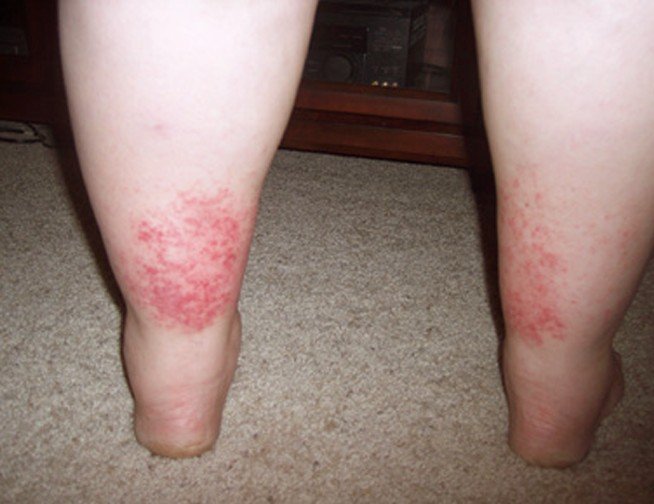 Pictures of vasculitis on legs
Pictures of vasculitis on legs
Vasculitis Treatment
How vasculitis is treated depends on the organs that are affected when you are diagnosed. It may not need treatment and go away on its own if the cause is an allergic reaction but if it affects organs that are critical to life like your brain, kidneys, or lungs, the treatment will be more aggressive. The standard treatment that is used is corticosteroid medications. If the cause is cancer you may be given chemotherapy medication but in lower doses.
When you are given corticosteroid medications, known as steroids, they will be used to treat your inflammation. You may be prescribed predinisone.
You may also be prescribed medications to help control your immune system if your vasculitis does not respond the right way to corticosteroids. The physician may prescribe cytotoxic medications that will kill your immune system cells that are causing the inflammation.
The specific treatment and how long it will last will be specific to the type of vasculitis that you have. The treatments are designed to not only reduce the inflammation of the blood vessels but also to help repair the weakened or damaged blood vessels. The treatment will also help to bring the infected organ back to health.
